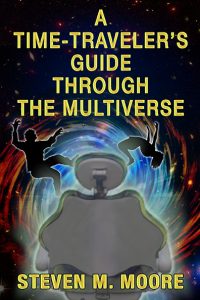“Evergreen” vs. “classic”…
I use “evergreen” to indicate a work of fiction that is as current and exciting as the day its author finished its manuscript. “Classic” is a catch-all term, overused in many ways, often incorrectly as if it were a superlative (like its cousin, “literary fiction” in many ways), and it often just means “a book you should read whether you like it or not,” the latter often coming from snobs and high school English teachers.
To Kill a Mockingbird might be evergreen, especially considering that improved race relations in America are something MLK would still be dreaming about, but it isn’t a classic either in any sense of the word because there are a lot of fiction books who portray the sorry state of race relations in America a lot better! Mockingbird is also probably just too old to be meaningful relevant as well, and it certainly isn’t entertaining. Okay, maybe it’s a classic in that sense of an English teacher bludgeoning her students by forcing them to read it.
As a historical novel—the only way it might be considered a classic—it’s less of a classic than Tolstoy’s War and Peace or Hugo’s Les Miserables, but old historical novels like these three often are ponderous and boring and therefore appropriate bludgeons for English teachers to use in America’s classrooms in their goal to make students hate reading. And while Macron probably read Les Miserables (self-serving and silly protests of French citizens against his increase of the retirement age are probably more violent than those in Hugo’s work), and Putin might think that he’s creating a new version of Tolstoy’s work that that it only has war and no peace. One can be sure, however, that Putin’s most ardent fan Trump never read that Bible he held upside down after walking across the park to that church. (That great book might qualify as both a classic and evergreen, by the way, but not in Trump’s hands because he couldn’t even bother to read his security briefs!)
Yes, I know there are publishers who make a lot of money selling fancy leather-bound tomes of boring “classics” that they insist should be on every educated person’s bookshelves. I’ve perused one of those, all of Shakespeare’s dramas (I studied the bard’s work for an entire semester in college—the professor made the dramas interesting; old William, not so much), but generally it’s less useful to me than Brainy Quotes and more useful as a doorstop. I also recently purchased the “original” pocketbook edition of The Hobbit and The Lord of the Rings Trilogy (I guess they can still call it original if it’s just a reprinting?), but that was more because I’d missed The Hobbit when reading Tolkien as a kid. (Those are both classics and evergreen, of course, and done far better than most fantasy books that have followed.)
The aforementioned publishers of those bulky leather-bound and colorful tomes (the perfect medium for any decorator wanting to create a color-coordinated and decorous perception of well-read ladies and gentlemen) create “classics” for people who can’t bother to read but want to put on airs and pretend to be cultured. “Evergreen books,” on the other hand, are stories avid readers actually read and maybe read again and again. You have a right to disagree, of course. “Evergreen book” isn’t standard literary terminology, after all. But it should be!
***
 Comments are always welcome. (Please follow the rules on the “Join the Conversation” web page. If you don’t, there’ll be consequences!)
Comments are always welcome. (Please follow the rules on the “Join the Conversation” web page. If you don’t, there’ll be consequences!)
A Time Traveler’s Guide through the Multiverse. Most sci-fi books are evergreen, and this one is too (although, within my oeuvre, it’s fairly recent). This sci-fi rom-com has historical fiction elements (the twists on historical and future events taking place in parallel universes), so maybe students can convince their English teachers it’s also a classic? (Okay, it’s a bit raunchy at times—dare I say “gay”?—so Ron DeSantis might want to ban it, so I suppose the students have to live outside Florida.) In any case, it’s time travel done right. Using the many worlds theory of quantum mechanics, it completely avoids the classic paradoxes as physicist Gail and her lab tech Jeff hop from universe to universe and shag to shag on their romantic road to exciting adventures and discoveries. Gail isn’t the meek and mild time-traveler’s wife, and Jeff is more brains than brawn. Available wherever quality ebooks are sold.
Around the world and to the stars! In libris libertas!
